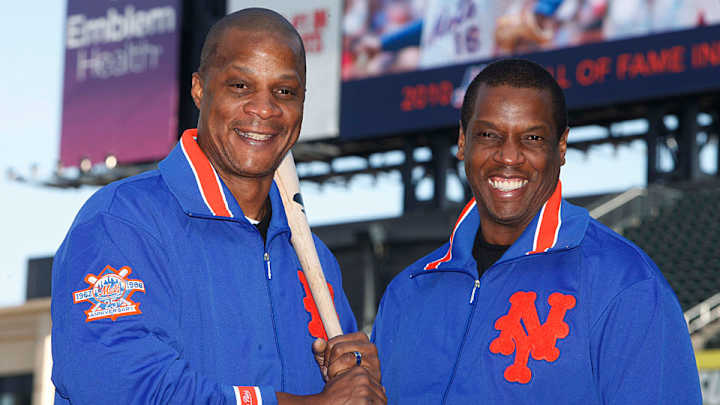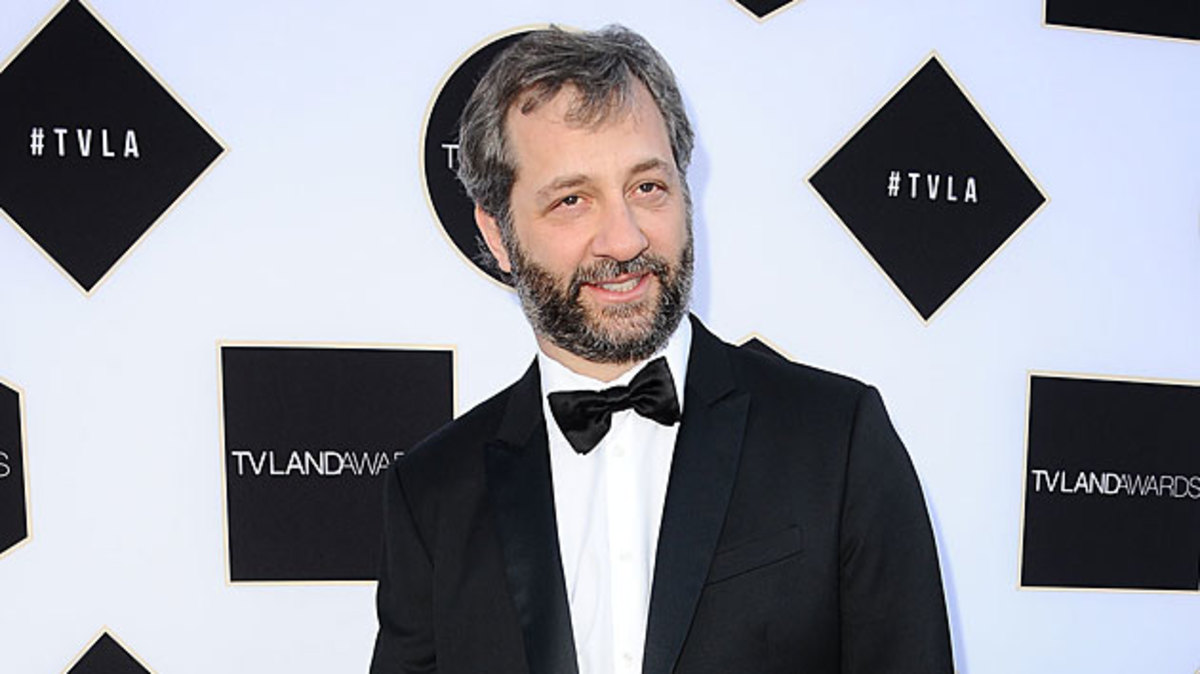Judd Apatow on Darryl Strawberry, Dwight Gooden and his new 30 for 30

Your teams. Your favorite writers. Wherever you want them. Personalize SI with our new App. Install on iOS or Android.
The latest ESPN 30 for 30 film is Doc & Darryl, which tells of the rise and fall (and rise and fall, and rise and...) of former New York Mets superstars Dwight Gooden and Darryl Strawberry. With Gooden as the team's overpowering ace and Strawberry its powerful slugger, the two supremely talented players helped rebuild the Mets, culminating in the franchise's most recent World Series title in 1986. Shortly thereafter, however, they fell into a cycle of substance addiction and legal troubles that shortened their careers and threatened to end their lives. Now in their 50s, Gooden and Strawberry were reunited at a diner to talk about their journeys in Doc & Darryl, which premieres Thursday night at 9 p.m. ET on ESPN.
Judd Apatow and Michael Bonfiglio co-directed the film. Apatow—best known as the director and/or producer of such comedies as The 40-Year-Old Virgin, Knocked Up and Superbad—was born in Flushing, N.Y., the home of Shea Stadium, and grew up in Syosset, on Long Island, during the heyday of Gooden's and Strawberry's Mets careers. Apatow answered some questions via email about the film, the stars and the dangers of drug and alcohol addiction.
SI: This is obviously a lot different from the projects you’re best known for. How did you get involved with it?
Apatow: I met Michael Bonfiglio when he directed an episode of the TV show Iconoclasts about myself and Lena Dunham. He was so impressive and I thought it would be fun to collaborate with him on something. He directed the 30 for 30 episode You Don't Know Bo. One day I was tweeting my admiration for a 30 for 30 episode I liked, and Jenna Anthony at ESPN tweeted back and asked if I would like to direct one. That's when I pitched the idea of doing one about Dwight Gooden and Darryl Strawberry with Mike. Twitter finally led to a job! All those pointless hours finally paid off.
SI: How did you guys get them together, and how did you decide to use that diner in Queens?
Apatow: Mike asked for a cool looking diner like the one in Goodfellas, and one of our producers, Kelsey Field, said, "Well, let's just get the one from Goodfellas." Which we did.
SI: Were you a fan of those Mets teams?
Apatow: I graduated high school on Long Island in 1985 and was a giant Mets fan. I loved them when they were terrible. I always relate more to the losers than the winners. I would go to Shea Stadium and watch the game with crowds of 5,000 and be in heaven. It was the era of Dave Kingman and George Foster. On Banner Day I walked around with a banner [referencing former Mets announcer Ralph Kiner] that said "Kiner Makes Me Want to Ralph"! I even interviewed Mookie Wilson in junior high school for my school paper.
We all heard about Darryl Strawberry when he was in the minors. There was a great sense of anticipation that someone would soon arrive who would change the fortunes of this team.
I followed them so closely and so emotionally that at the end of the 1985 season I decided to take a break because it was making me crazy. Of course they won the World Series in 1986, the year I paid no attention at all.
I remember seeing a game where Dwight Gooden had 16 strikeouts. The place exploded with every pitch like they were in the last game of the World Series. I don't know if I ever had more fun in my life. The only think you could compare it to was Fernandomania.

SI: Had you ever met Gooden and Strawberry before?
Apatow: I had not. Mike did all of the interviews. He is a brilliant documentarian and is much stronger than me at that. I am sure I would have been too deferential if I interviewed them because I have been a fan for so long. So Mike and I would do the research and discuss what areas we wanted to explore with each interview and he would conduct them.
• SI VAULT: The high price of hard living, by Tom Verducci (02.27.95)
SI: Their problems have been well-documented, but there are new details in this film that add to the sense of just how much trouble Gooden and Strawberry were in. What did you make of their struggles from afar?
Apatow: I have great compassion for their struggles. Addiction is a vicious disease. I have known an enormous amount of comedians who have fought it and many who did not survive. I can't imagine how painful it has been for them, but they continue to fight and survive.
• Subscribe to get the best of Sports Illustrated delivered right to your inbox
SI: What sort of impact do you think their difficulties with addiction had on people? Do they have a sense that they may have actually scared people straight?
Apatow: Anytime people witness the destruction that addiction leaves in its wake, one would hope it serves as a cautionary tale to others who consider doing drugs. I talk about drugs with my kids all the time, and I always say, "You never know if you are someone who can experiment a little and be fine, or if you are the person who is going to immediately get addicted and have your life destroyed, so don't mess around with it." I think due to a combination of genetics, difficult childhoods, pressure and an environment that was accepting of this type of behavior, these guys were a perfect storm for this type of addiction nightmare.
SI: Addicts are often known for lying or evading the truth. Did you get the sense they were being truthful throughout the film?
Apatow: I assume some moments are so painful or shameful that they have rewritten history in some way to live with it. Most of the time I think they are brutally honest and I think that takes great courage. I think that is one of the interesting aspects of the film, seeing how they talk about these incredible highs and tragic lows to each other.
SI: Gooden and Strawberry had so many relapses, and the film points out the devastating grip addiction can have. Do you think there will be more to their story?
Apatow: I think their struggle with addiction is a lifetime fight, like it is for all people with that disease. Darryl has made it his vocation to help people through his rehab centers and his speaking engagements. Dwight seems to be having a harder time. The post-career life of a superstar athlete is challenging in ways most of us can never understand. One of the main questions the movie raises is, are they friends, or is that something the media and the fans created? I hope the film helps strengthen their relationship, because they have had a common journey that only the two of them can truly understand.
